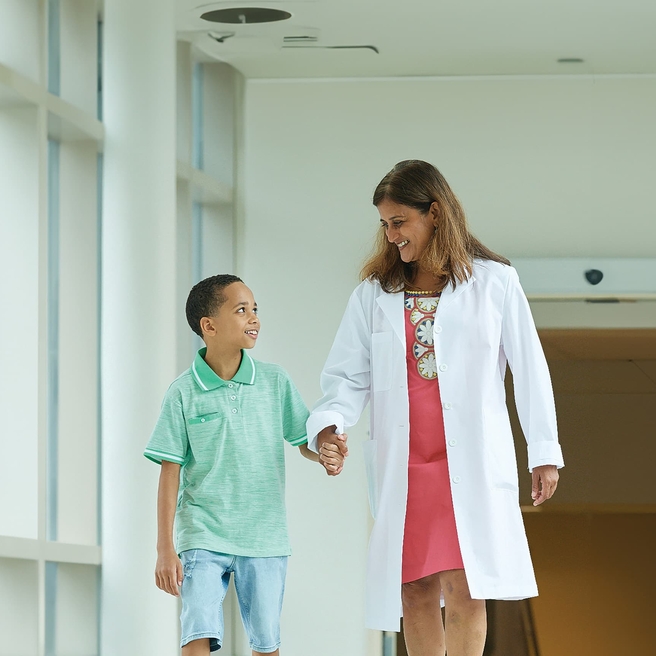Many factors influence how a child feels about having congenital (present at birth) heart disease. Some of these factors include:
-
The type of defect. A child may have many different emotions about having a congenital heart defect that requires one operation to repair or that requires many operations and regular medical care.
-
The age of the child when the heart defect was diagnosed. A child who was diagnosed at birth and who has grown up with the heart defect may adjust differently than a child who learns of his or her heart disease at an older age, after living a seemingly healthy life.
-
The number of hospitalizations. Children who require many diagnostic tests and procedures, surgeries, and/or other hospitalizations may feel angry, fearful, resentful, or withdrawn.
-
The age of the child. Younger children may have difficulty understanding their illness and may misinterpret the reasons for tests and surgical procedures. Whereas, older children can better understand information about their illness and what it will take to make them well.
-
The coping skills and temperament of the child. Some children can deal with adversity better than others, and some children are more nervous or anxious than others.
-
Body image. Surgical scars, cyanosis (blue coloring of the skin, lips, and nailbeds), or the need for medical therapies, such as oxygen or feeding tubes, often make a child feel different from others, and can affect self-esteem and body-image.
-
Family dynamics. A child's emotions can be affected by the way his or her family members cope with the illness, as well as other issues including the stress felt by the family. Finances, work, and insurance problems the family may face, or siblings who are jealous of the extra attention the child with the heart defect may receive due to his or her illness, will all affect your child's emotions.
Doctors, nurses, social workers, counselors, and other healthcare team members can provide guidance and recommendations for managing the many emotions that may accompany a chronic disease. They may also recommend community services and local support groups.
Local support groups are made up of children with congenital heart disease and their families. Ask about meetings, outings, and parties for children and their families. It often helps to talk to others in your situation, and for your child to experience activities with others that are like him or her. Your child's cardiologist (or the staff at the hospital) can give you more information about a group in your area.
Be sure to also ask about special camps that have been created for children with congenital heart disease to help them interact with each other and have fun. Many of the volunteer counselors at these camps are nurses, doctors, respiratory therapists, and other medical professionals who love having fun with the children in a camp setting, but who are also able to give medications and help with special needs of children with congenital heart disease.
Resources to help
Cardiac Center Resources
We know that caring for a child with a heart condition can be stressful. To help you find answers to your questions – either before or after visiting the Cardiac Center – we’ve created this list of educational health resources.
